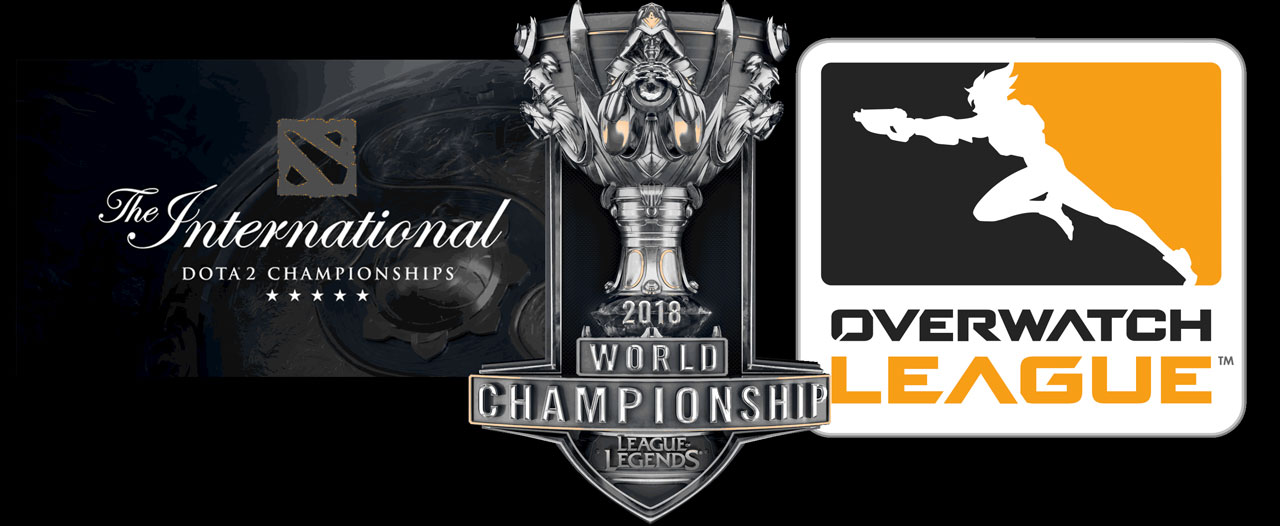 When you ask most people in America what the most popular sports event is they’ll respond with things like “The World Series” or “The Super Bowl.” Both are accurate answers, but each of those events has had viewership trending downward for years now. If you were to poll those same people on the popularity of esports, they might be aware of the prevalence of Twitch or have seen Overwatch on TV. However, the 2018 League of Legends World Championship had over 200 million concurrent viewers. That’s more than twice the number that watched the Super Bowl in the same year. While removing the huge contribution of Chinese viewership makes the number much less impressive, and nothing comes close to the worldwide spectators of the Fifa World Cup, it still says a great deal about the growth of the esports.
When you ask most people in America what the most popular sports event is they’ll respond with things like “The World Series” or “The Super Bowl.” Both are accurate answers, but each of those events has had viewership trending downward for years now. If you were to poll those same people on the popularity of esports, they might be aware of the prevalence of Twitch or have seen Overwatch on TV. However, the 2018 League of Legends World Championship had over 200 million concurrent viewers. That’s more than twice the number that watched the Super Bowl in the same year. While removing the huge contribution of Chinese viewership makes the number much less impressive, and nothing comes close to the worldwide spectators of the Fifa World Cup, it still says a great deal about the growth of the esports.
Sports like football, baseball, and basketball have historically split up the year in the United States, each dominating their own months of the year with moderate overlap to serve as the entertainment for America. For a variety of reasons, the average viewership for these sports has been on a notable decline for several years now. That viewership as a percentage of total Americans makes the trend even more dramatic. This has resulted in some movement to improve the games and make them more streamlined – appealing more to modern younger audiences who can and do find more entertaining and gratifying hobbies.
Esports, despite taking root in the 1990s, has only recently begun to take off. This is in part due to the growth of streaming and streaming platforms – making the massive hurdle of getting a television spot much less important. Competitive gaming has become much more mainstream, with some colleges creating esports programs and drafting teams to represent them. Sponsors have gone from being small event-related companies like computer hardware to multi-billion dollar mainstream advertisers like Mastercard and Coca-Cola. Winnings have correlated to this massive rise, going from thousands of dollars to tens of millions at modern events. Today, as millions of people tune into gaming competitions around the world, all of these numbers will only continue to increase.
Will there ever be a point where esports overtake traditional sports? Perhaps, but there are a lot of obstacles on that road. The first being the ever-changing nature of the games being played. It’s not just that a game popular enough to warrant an esport event is virtually guaranteed to change to some degree between each major tournament, it’s also the very nature of players to simply move on. The ebb and flow of Dota 2 is plain to see as it met its peak average players nearly three years ago. That isn’t to say it’s on its way out by any means, but no game stays popular forever.
There’s also an issue relating to the general relatability of a game when compared to a traditional sport. If you look at football, the average person may not get the nuances of specific play calls, pass coverage, clock management and so on, but they can see the core components to know when one team is doing well and one is not. Many popular esports games have moments where even those familiar with the game can lose track of exactly what’s going on. Clusters of combat and a kaleidoscope of colors from effects on screen can make things far more difficult to discern for a newcomer.
Traditional sports also have the advantage of teams being representative of regions. That way, even someone that doesn’t play a specific sport or doesn’t know what’s going on can have a team that represents them. They can feel invested and cheer for someone no matter what the situation. Esports have historically been without that regional affinity, but Blizzard made an effort to change that with the Overwatch League. While the quality of Overwatch as watchable esport is debatable by some, Blizzard has invested heavily in trying to make it grow. It even has blazed a trail for mainstream distribution on television channels like ESPN. It’s hard to say how effective this is so early on in its lifespan, but it’s clearly something that is making progress.
Traditional sports have been and will continue to be money machines. They will continue to be an attractive choice for advertisers and the goal for many talented athletes all over the world. They may dip in favor over time, but they’ll stick around for the foreseeable future. Esports, on the other hand, is still in its infancy. It may not continue its meteoric rise forever, but everything is indicating that it is here to stay. The future has plenty of room for both traditional sports and esports to shine brightly, but one of these two is definitely more capable of adapting to changing times than the other.
What do you think? Are traditional sports going to become a relic of the past with a limited following in the future? Do esports grow to become the main pastime around the world? Or, does everyone just give up and watch reality TV?



